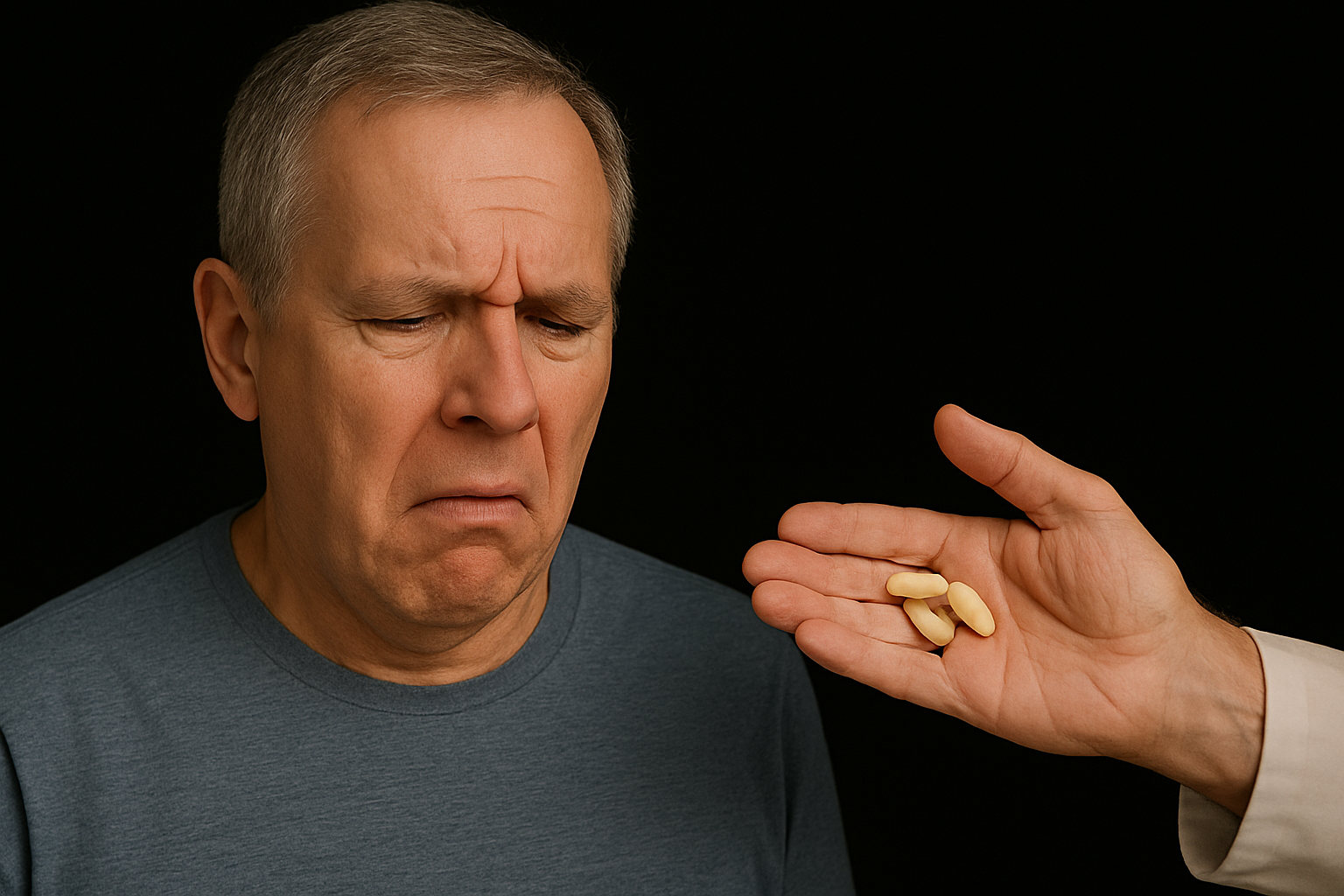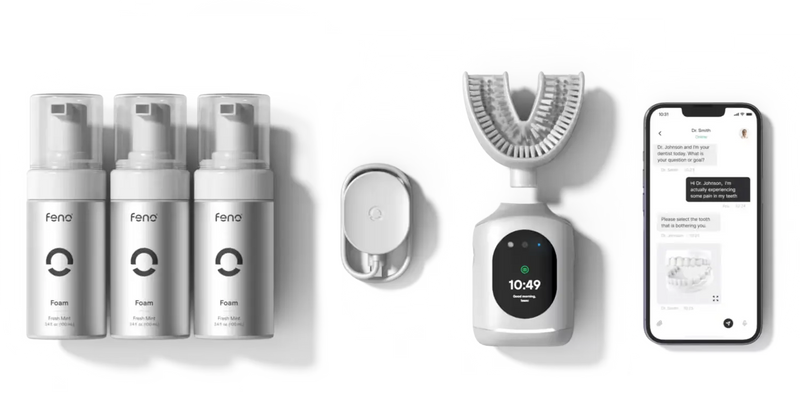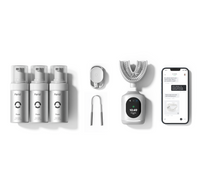
Managing Dry Mouth Caused by Stroke Medications
Essential Takeaways
- Stroke medications commonly cause dry mouth by reducing saliva production, but combining proper hydration, xylitol products, prescription fluoride treatments, and regular dental care can effectively manage symptoms and protect your oral health.
Why Do Stroke Medications Cause Dry Mouth?
If you're experiencing dry mouth after starting stroke medications, you're not alone. Blood pressure medications (like captopril and amlodipine), antidepressants, and anticonvulsants commonly prescribed after stroke can significantly reduce saliva production, a condition known as xerostomia.
(World Journal of Advanced Research and Reviews, 2024)
Saliva plays a crucial role in maintaining oral health by:
- Neutralizing harmful acids in your mouth
- Washing away food particles and bacteria
- Providing natural antimicrobial protection
- Helping with digestion and swallowing
When medications reduce saliva flow, your risk for cavities, gum disease, and oral discomfort increases substantially.
The Research Behind Medication-Induced Dry Mouth
Multiple systematic reviews and clinical studies confirm that stroke medications directly impact saliva production. Research consistently shows that:
- Antihypertensive drugs measurably reduce salivary flow rates
- Tricyclic antidepressants are among the most xerogenic medications
- Patients taking multiple medications (polypharmacy) face significantly higher dry mouth risks
- The more xerogenic medications you take, the greater the reduction in saliva flow
Recent dental research demonstrates a clear association between the number of dry mouth-inducing medications and decreased oral health outcomes, validating concerns about medication-related xerostomia in stroke survivors.
Evidence-Based Ways to Relieve Dry Mouth
Immediate Relief Strategies
Stay consistently hydrated throughout the day by:
- Sipping water regularly, not just when thirsty
- Keeping a water bottle nearby at all times
- Avoiding caffeine and alcohol, which can worsen dehydration
Use sugar-free gum or lozenges with xylitol, which:
- Stimulates natural saliva production
- Provides antibacterial benefits
- Offers immediate moisture relief
Professional Treatment Options
Prescription-strength fluoride toothpaste helps:
- Strengthen tooth enamel weakened by reduced saliva
- Provide enhanced cavity protection
- Combat bacterial overgrowth
Saliva substitutes and stimulants recommended by dentists can:
- Provide artificial moisture when natural saliva is insufficient
- Contain enzymes that mimic natural saliva functions
- Offer long-lasting relief between doses
Preventive Care Essentials
Schedule more frequent dental cleanings. Ideally every 3-4 months instead of twice yearly to:
- Monitor oral health changes early
- Remove plaque buildup more effectively
- Receive professional fluoride treatments
When to Contact Healthcare Providers
Never stop taking prescribed stroke medications without consulting a doctor first. Instead, contact healthcare providers if the patient experiences:
- Severe dry mouth affecting eating or swallowing
- Persistent bad breath or metallic taste
- Increased tooth sensitivity or pain
- Difficulty sleeping due to mouth dryness
- Signs of oral infections or sores
The doctor may be able to adjust medication timing, dosages, or switch to alternatives with fewer dry mouth side effects.
Advanced Oral Health Monitoring for Medication Users
For anyone managing medication-induced dry mouth, regular oral health monitoring becomes even more critical. Advanced oral health technology like the Feno Smartbrush™ can provide detailed oral health insights.
The Feno system offers several benefits for those dealing with medication-induced dry mouth:
- Professional oral health assessments from home through connected oral health coaches
- Early detection of plaque buildup and gum inflammation that dry mouth can worsen
- Comprehensive cleaning in just 20 seconds, which can be especially helpful when motivation or energy is low
This type of technology can be particularly valuable for patients who may have mobility challenges that make regular dental visits more difficult, while ensuring consistent monitoring of oral health changes related to medication use.
Long-Term Oral Health Protection
Managing medication-induced dry mouth requires a comprehensive approach:
Daily habits:
- Use alcohol-free mouthwash to avoid further drying
- Apply lip balm regularly to prevent cracking
- Sleep with a humidifier to add moisture to the air
- Avoid tobacco products, which worsen dry mouth
- Consider advanced oral care technology for consistent monitoring
Dietary considerations:
- Choose moist foods and avoid overly salty or spicy options
- Limit sugary snacks that feed harmful bacteria
- Include dairy products, which can help neutralize acids
The Bottom Line
Dry mouth from stroke medications is a common and well-documented side effect, but it doesn't have to compromise quality of life or oral health. With the right combination of daily habits, professional care, and evidence-based treatments, patients can effectively manage symptoms while maintaining the crucial stroke medications that protect their health.
Working closely with both medical teams and dental professionals to develop a personalized dry mouth management plan can keep patients comfortable and maintain healthy smiles.
Remember: This information is for educational purposes and shouldn't replace professional medical advice. Always consult your healthcare providers about medication concerns and oral health management.

Feno Founders Edition Bundle
Advanced Oral Health in 20 Seconds with the Feno Smartbrush™
Get Yours Now!





